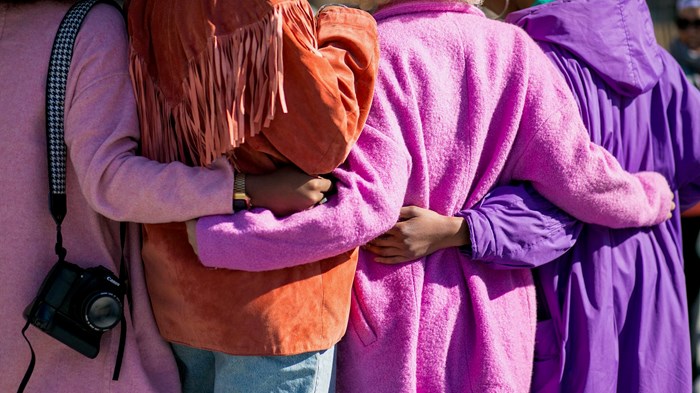4 Spiritual Truths Proven by Science to Build Resilience

COVID-19 has not just strained many people’s resilience and personal faith, pushing many to their limits. One of the ways research has found that the church is a powerful source of resilience is through community. Yet, because of COVID-19, when we’ve needed community the most, it’s been more difficult to experience. This has not only taken a toll on people’s mental health, but also spiritual health. Here are some spiritual truths that are important to remember according to Scripture and science for cultivating resilience as we continue to navigate COVID-19 adversity.
Don’t try to do this alone.
We all need community. God gave us the gift of his church for a reason. In fact, the science bears this out: In a study I conducted with colleagues after the 2015 South Carolina floods, we found that people who had positive spiritual support were more likely to demonstrate disaster resilience. When we try to do it all on our own and give the impression that everything is fine, we are closing ourselves off to the gifts God wants to give us through others. When we seek spiritual community, we can experience God’s presence, provision, and love in tangible ways. We can choose to allow pain to isolate us from others or to bring us together.
Accept what you have control over, and what you don’t.
In another study I led after Hurricane Katrina, we found that people who demonstrated high levels of “spiritual surrender” tended to recover better. This didn’t make sense to me at the time—the idea of “surrender” seemed too passive to be an effective response. But now my own experiences of disaster have shown me just how powerful this idea is. When we truly understand and accept what we have control over and what we don’t, we are demonstrating willful obedience to God.
Seek positive meaning in your loss.
Disasters like COVID-19 lead us to ask the hard questions like why bad things happen. In interviews with disaster survivors, my colleagues and I have found that two people going through the same type of loss can interpret their experiences very differently. One may believe that God is punishing them while the other believes God saved them. Our research found that the person who attributes negative meaning is likely to struggle more than the person who attributes positive meaning to their loss. Finding meaning in our loss allows us to move forward.
Trust that God can redeem your pain.
When you’re in the midst of something hard, it can feel like nothing good could ever possibly come out of the pain you’re experiencing. But the foundation of our faith is God’s promise to ultimately redeem all things, and he often offers us glimpses of that here on earth.
In another study we did with disaster survivors, we found that being able to trust God amidst hardship led to positive spiritual outcomes. When I was helping gender-based violence survivors in the Democratic Republic of the Congo, I learned of a group of people whose homes had been destroyed by a volcano. They returned to the area and built new homes out of the ash and lava rock left behind. This was a poignant picture of how God can even use our brokenness to help us put the pieces of our lives back together again.
Kent Annan is director of Humanitarian and Disaster Leadership at Wheaton College, where he leads an M.A. program as part of the Humanitarian Disaster Institute. Jamie Aten is the founder and executive director of the Humanitarian Disaster Institute and Blanchard Chair of Humanitarian and Disaster Leadership at Wheaton College.
Students the Humanitarian Disaster Leadership M.A. program at Wheaton College spend time exploring themes of trauma and resilience. To learn more, visit our website.
The Better Samaritan is a part of CT's
Blog Forum. Support the work of CT.
Subscribe and get one year free.
The views of the blogger do not necessarily reflect those of Christianity Today.






















